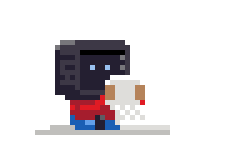Contrary to what the documentation might seem to imply [1], Bats' 'fail' helper only aborts a test case under certain circumstances. eg., when called from setup_suite(), but not from within a child function, and a @test case, but not from within the 'run' helper. If 'fail' is called from within 'run', then the code after it will continue to execute. The test case will only fail if 'run' eventually catches a non-zero exit code that's caught by 'assert_success' [2]. Similarly, it doesn't abort if called from within a child function in setup_suite(). Currently, _pull_and_cache_distro_image() is a child function called from setup_suite(). So 'fail' won't abort if an invalid distribution is specified. Fortunately, pull_distro_image() is being called from within @test cases, but outside 'run'. So, there's no problem with it now. However, some future code changes can unknowingly alter this reality and it too can run into unexpected behaviour. Therefore, it's better to be safe, and explicitly specify a non-zero exit code after 'fail'. It will ensure that it works as expected under all circumstances. [1] https://github.com/bats-core/bats-support [2] https://github.com/bats-core/bats-assert https://github.com/containers/toolbox/pull/1375 |
||
|---|---|---|
| .github | ||
| data | ||
| doc | ||
| images | ||
| playbooks | ||
| profile.d | ||
| src | ||
| test | ||
| .codespellexcludefile | ||
| .gitignore | ||
| .gitmodules | ||
| .mailmap | ||
| .zuul.yaml | ||
| CODE-OF-CONDUCT.md | ||
| CONTRIBUTING.md | ||
| COPYING | ||
| gen-docs-list | ||
| GOALS.md | ||
| meson.build | ||
| meson_options.txt | ||
| meson_post_install.py | ||
| NEWS | ||
| README.md | ||
| SECURITY.md | ||
| toolbox | ||
Toolbox is a tool for Linux, which allows the use of interactive command line environments for development and troubleshooting the host operating system, without having to install software on the host. It is built on top of Podman and other standard container technologies from OCI.
Toolbox environments have seamless access to the user's home directory, the Wayland and X11 sockets, networking (including Avahi), removable devices (like USB sticks), systemd journal, SSH agent, D-Bus, ulimits, /dev and the udev database, etc..
This is particularly useful on OSTree based operating systems like Fedora CoreOS and Silverblue. The intention of these systems is to discourage installation of software on the host, and instead install software as (or in) containers — they mostly don't even have package managers like DNF or YUM. This makes it difficult to set up a development environment or troubleshoot the operating system in the usual way.
Toolbox solves this problem by providing a fully mutable container within
which one can install their favourite development and troubleshooting tools,
editors and SDKs. For example, it's possible to do yum install ansible
without affecting the base operating system.
However, this tool doesn't require using an OSTree based system. It works equally well on Fedora Workstation and Server, and that's a useful way to incrementally adopt containerization.
The toolbox environment is based on an OCI
image. On Fedora this is the fedora-toolbox image. This image is used to
create a toolbox container that offers the interactive command line
environment.
Note that Toolbox makes no promise about security beyond what's already available in the usual command line environment on the host that everybody is familiar with.
Installation & Use
See our guides on installing & getting started with Toolbox and Linux distro support.


